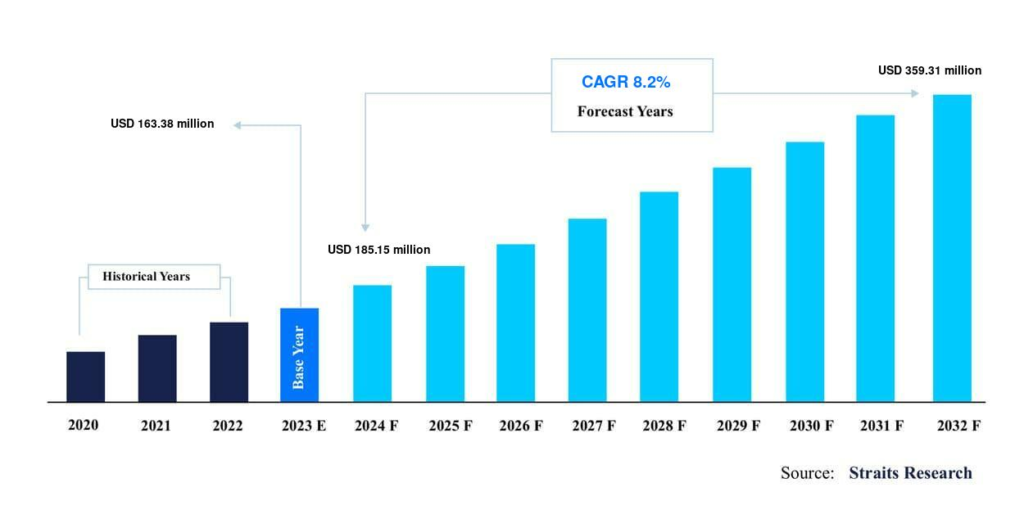Overview
The global smart wheelchair market, valued at USD 163.38 million in 2023, is projected to grow at a CAGR of 8.2%, reaching USD 359.31 million by 2032. Smart wheelchairs incorporate advanced technologies like AI, IoT, and sensors, enabling features such as obstacle detection, navigation, customizable controls (joysticks, voice commands, or thought control), and real-time health monitoring. These features enhance mobility, autonomy, and quality of life for users in various settings, including homes, hospitals, and elderly care facilities.
Market growth is driven by rising demand for innovative mobility solutions for the elderly and disabled, fueled by advancements in technology. Despite high initial costs, the long-term benefits of independence and improved quality of life make these wheelchairs attractive. Key innovations, such as voice control and advanced navigation, are transforming traditional wheelchair functionality, catering to diverse user needs in rehabilitation and elderly care.

Use Case
Mrs. D receives an invite to her friend’s home for lunch. She gets on her wheelchair parked in front of the door, and entered her friend’s house as destination in AnyWill App. The wheelchair starts to autonomously navigate to the destination. The wheelchair automatically chooses the safest path and avoids obstacles on its own. It can also react to Mrs. D’s voice instructions. Finally, Mrs. D reaches destination safely and comfortably.

